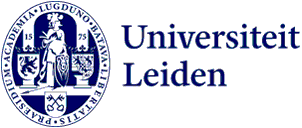Thesis and papers
When writing a thesis or paper you must make good use of the insights you have gained during your lectures and studies so far. You should also refer to relevant literature and carry out your own research on the topic.
One of the most important things you will learn during an academic study programme is how to write an interesting piece of work that meets the criteria of scientific quality, whilst also being accesible to the broader public.
Refer to our Study skills pages for more information on academic writing skills.
Portfolio
You will acquire substantive knowledge and (research) skills throughout the CSM-programme, especially in the specialisation courses where assignments are tailored towards testing specific research skills: literature review, data collection, analysis of complex situations and phenomena, and critical review of standing research.
In your portfolio, you include assignments produced during the specialisation courses and common courses, showing the (research) skills and competencies acquired.
The portfolio also functions as a showcase for future employers: you can not only show to employers skills obtained, but also the research papers they produced. The portfolio therefore is also part of the labour market preparation in the CSM-programme.
Additionally, the portfolio has to be accompanied by a reflection paper and problem analysis assignment. In the specialisation courses and common courses you have to produce short interim reflection papers, that serve as the basis for the final reflection paper.
In the final reflection paper, you reflect on your learning pathway in terms of (research skills) and general insight in Crisis and Security Management as developed during the programme. That way, you show your competency of self-directed learning and the ability to critically reflect on their competencies and achievement as a (future) reflective, academically trained security professional.
A defense meeting in which the portfolio, reflection paper and problem analysis assignment will be presented and discussed, is part of this course and function as the formal final step in order to graduate.
More information (study guide)
Graduation
When you have completed your portfolio and also obtained the rest of your credits you can apply for graduation.
Fraud and plagiarism
Instances of fraud and plagiarism are taken very seriously by the institute of Security and Global Affairs and will be subject to sanctions.
Fraud constitutes cheating on exams or falsifying research data. Plagiarism is a form of fraud and entails violating the intellectual property of someone else. Plagiarism means you take words, thoughts, analyses, reasoning, images, techniques, computer programs etc. that belong to someone else and present them (knowingly or not) as your own.
Since plagiarism is cheating, and because plagiarism by definition undermines the scientific enterprise, cases of plagiarism are taken very seriously by the university community and are punishable by sanctions. The maximum sanction for students amounts to a definite expulsion from the programme. When a student has doubts about what constitutes plagiarism, he or she can always consult with an instructor. Some general guidelines of the do's and don'ts of plagiarism can be found on the University website on regulations.
Rules regarding fraud & plagiarism
- ISGA has adopted rules and procedures regarding fraud and plagiarism in the Rules and Regulations, chapter 6.
- ISGA uses the program Usis to systematically check plagiarism. Work will therefore have to be submitted electronically as well as in hard-copy (see below).
- In a case in which fraudulent practice is suspected, the board of examiners will suspend the assignment of a grade pending investigation of the suspicion. The board of examiners will appoint a review committee consisting of three members that does not include those who have had direct supervision of the administration of the examination or the grading of written material from a course.
- The review committee will solicit testimony from all relevant parties, but will in any case hear testimony from those who had the respective supervision and from the student who is suspected of fraudulent practice.
- If the review committee determines that a fraudulent practice has taken place, the results of a test or of written work will be declared invalid. There are various sanctions which can be applied based on the gravity of the committed offence. These can be found in the Rules and Regulations chapter 6.
- Students have a right to appeal to a decision by the Board of Examiners. See Rules and Regulations chapter 8.
Bachelor and Master theses will also be submitted in the digital Repository of the University.
Course and Examination Regulations
The Course and Examination Regulations (CER) are a part of the student charter and contains information on, i.e., admission criteria, programmes and graduation.
The CER per master is to be found on this page. The Rules & Regulations of the examination board contains the most important rights and obligations of students regarding issues such as:
- Content of the programme
- Exams
- Admissions criteria
- Study support
The Rules and Regulations are to be found on the page of the Board of Examiners.
